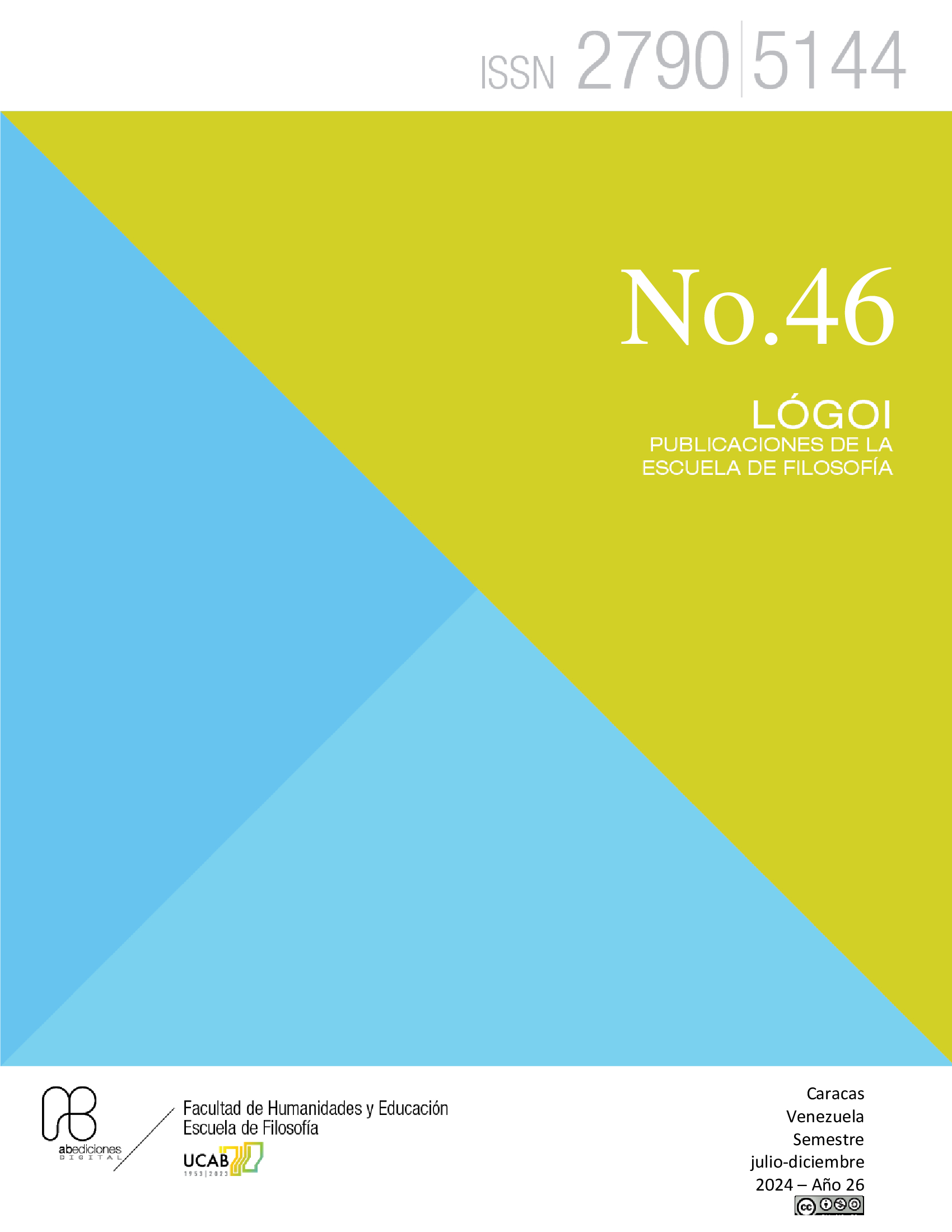About the Journal
Lógoi. Revista de Filosofía
Journal dedicated to philosophical topics. It promotes and disseminates research in the areas of epistemology, theory of argumentation, ethics, history of philosophy, and relations with different areas of knowledge. It is an open access journal that follows the ethical guidelines of periodicals. The Journal is published every six months, 2 issues, January-June, July-December.
Lógoi. Revista de Filosofía maintains a permanent call for original and unpublished contributions throughout the year. From the present call, with the purpose of increasing the international projection of the journal, we encourage the submission of articles in Spanish, English, Portuguese, French, German and Italian in the fields of philosophical knowledge.
Logoi. Journal of Philosophy is a peer-reviewed scientific journal. Published by the Universidad Católica Andrés Bello, its objective is to create a space for the dissemination of research results in the philosophical field to disseminate them among specialists, academics, students and the public interested in philosophical topics.
Lógoi, Revista de Filosofía does not contemplate any fee for authors to accept or publish in the journal
Current Issue

Emerging from the intellectual ferment of the early 20th century, phenomenology, the philosophy of “accounting for” subjective experiences, has established itself as a cornerstone of contemporary thought. His profound contributions to the understanding of consciousness, perception, and intersubjectivity have resonated across diverse disciplines, shaping our understanding of the human condition. As we navigate the complexities of the 21st century, the importance of phenomenology remains unchanged. Issue 46 of Lógoi, Revista de Filosofía is titled “Phenomenology in the 21st century: perspectives and problems” and attempts to be an effort to delve deeper into the multifaceted landscape of contemporary phenomenology, exploring its diverse perspectives and the pressing problems it faces.
From Husserl's transcendental phenomenology, with its emphasis on the constitution of experience, to postphenomenological currents that extend the scope of phenomenological reflection to corporeality, affect and embodied intersubjectivity, even towards themes that, at the time, were considered exclusively theological, this issue shows the rich tapestry of phenomenological approaches. We also examine the challenges facing phenomenology in the 21st century. These include the need for dialogue with the natural and social sciences, the importance of rethinking the religious in a time understood as “postmodern”, the task of addressing the complexities of contemporary social and cultural life, as well as the search for practical applications that contribute to a better understanding and intervention in various spheres of human existence.
Presentation
Article






.png)











